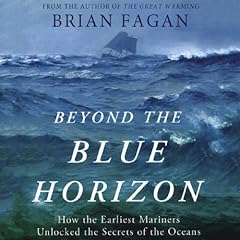
The Great Warming
Climate Change and the Rise and Fall of Civilizations
No se pudo agregar al carrito
Add to Cart failed.
Error al Agregar a Lista de Deseos.
Error al eliminar de la lista de deseos.
Error al añadir a tu biblioteca
Error al seguir el podcast
Error al dejar de seguir el podcast
Prueba gratis de 30 días de Audible Standard
Compra ahora por $20.88
-
Narrado por:
-
Tavia Gilbert
-
De:
-
Brian Fagan
A breakout best seller on how the earth's previous global warming phase reshaped human societies from the Arctic to the Sahara.
From the 10th to the 15th centuries, the earth experienced a rise in surface temperature that changed climate worldwide, a preview of today's global warming. In some areas, including Western Europe, longer summers brought bountiful harvests and population growth that led to cultural flowering. In the Arctic, Inuit and Norse sailors made cultural connections across thousands of miles as they traded precious iron goods. Polynesian sailors, riding new wind patterns, were able to settle the remotest islands on earth. But in many parts of the world, the warm centuries brought drought and famine. Elaborate societies in western and Central America collapsed, and the vast building complexes of Chaco Canyon and the Mayan Yucatn were left empty.
The history of the Great Warming of a half millennium ago suggests that we may yet be underestimating the power of climate change to disrupt our lives today - and our vulnerability to drought, writes Fagan, is the silent elephant in the room.
©2009 Brian Fagan (P)2010 Audible, Inc.Los oyentes también disfrutaron:




















Reseñas de la Crítica
Las personas que vieron esto también vieron:







Good world view of past climate
Se ha producido un error. Vuelve a intentarlo dentro de unos minutos.
I Learned So Much Listening to this Book
Se ha producido un error. Vuelve a intentarlo dentro de unos minutos.
good history...too long
Se ha producido un error. Vuelve a intentarlo dentro de unos minutos.
What the Last Warming Period Can Teach Us Today
Se ha producido un error. Vuelve a intentarlo dentro de unos minutos.
overall a good hear.
Se ha producido un error. Vuelve a intentarlo dentro de unos minutos.


